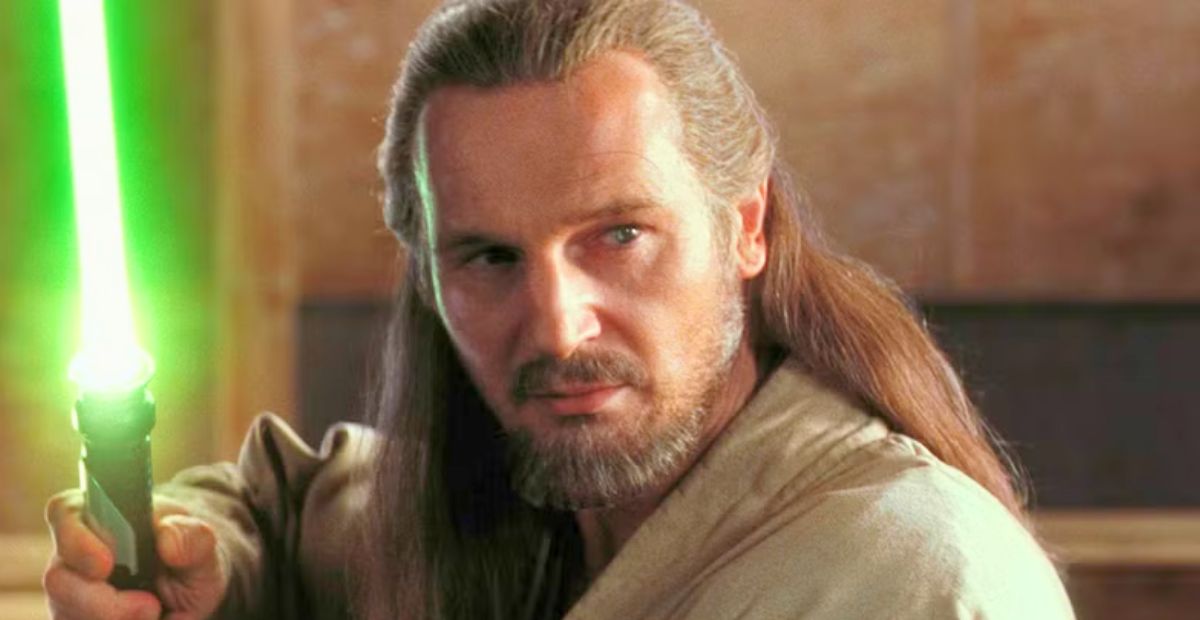If you’ve been deep into Star Wars discussions online, you’ve probably heard it before: “Qui-Gon was the Jedi the Order should have listened to.” And honestly? I agree.
Yoda was wise, no doubt. But Qui-Gon Jinn saw something the rest of the Council didn’t—because he didn’t just follow the Force. He trusted it. That one difference set him apart. It also might’ve made him wiser than even the Grand Master himself.
Qui-Gon Was the Only Jedi Who Truly Followed the Living Force
One of the clearest differences between Qui-Gon and the rest of the Jedi Council was how they viewed the Force. Most of the Jedi at the time followed a more rigid, dogmatic interpretation known as the Unifying Force. They were obsessed with long-term strategy, prophecy, and tradition. Qui-Gon didn’t care about any of that.
He believed in the Living Force—the idea that the Force speaks in the moment. You should be mindful of the present, not distant visions of the future. And he didn’t just say it. He lived it.
When Qui-Gon met Anakin Skywalker, he sensed something powerful in the boy. While the Council was hesitant, Qui-Gon trusted the Force. He knew the boy was the Chosen One. In The Phantom Menace, you see this divide clearly: “He is the Chosen One. You must see it.”
Yoda and Mace Windu didn’t agree. They saw attachment and fear. Qui-Gon saw potential and balance. He didn’t need a vision—he felt it through the Living Force. That’s why he refused a seat on the Jedi Council. He wouldn’t be a pawn in a system that had stopped truly listening to the Force.
Yoda Had the Wisdom of Time, But Qui-Gon Had Clarity
Yoda was wise, yes. He had lived for centuries. He trained countless Jedi. But his wisdom was clouded by the institution around him. By the time of the Clone Wars, Yoda himself admits that the Jedi had lost their way.
In Attack of the Clones, we get a chilling line from Yoda: “The shroud of the dark side has fallen. Begun, the Clone War has.“
He saw the signs too late. The Sith had returned. The Jedi were walking into a trap, and Yoda—despite all his knowledge—was part of the machine that let it happen. Qui-Gon, on the other hand, was never blind to the growing darkness. He may have died early, but he wasn’t deceived.
Even in The Clone Wars series, Yoda goes on a journey to discover how to become a Force ghost. Who leads him on that path? Qui-Gon Jinn. From beyond death, Qui-Gon teaches Yoda what he could never learn in life. That’s not just powerful—it proves that Qui-Gon saw something the Council didn’t.
Why Qui-Gon Refused a Seat on the Council
If Qui-Gon was so wise, why wasn’t he ever on the Jedi Council? Simple—he was offered a seat and turned it down.
In Master & Apprentice by Claudia Gray, we get a deeper look at his philosophy and independence. Qui-Gon wasn’t some reckless rogue Jedi—he was just someone who believed the Force mattered more than rules. And that kind of thinking never sat well with the Council.
There’s a moment in the book that captures this dynamic perfectly: “Qui-Gon had learned to get on better with the Council over time, but had always retained his independence. Obi-Wan still thought he had to obey the Council in every particular, at all times, and was horrified every time Qui-Gon deviated from standard protocols in the slightest.”
That line says it all. Qui-Gon wasn’t rebellious for the sake of it. He just understood that the Council wasn’t always right—and that blind obedience could get people killed.
That independence didn’t go unnoticed by the Jedi Council. In fact, they respected it—at least, some of them did. In the same novel, Qui-Gon is summoned by the Council and offered a seat among them. But instead of celebrating, he pauses. He knows what this means. It’s not just a promotion. It’s a turning point.
“Qui-Gon took a moment to collect himself. Without any warning, one of the turning points of his life had arrived. Everything he said and did in the next days would be of great consequence. ‘You’ve argued with my methods often as not, or perhaps you’d say I’ve argued with yours.’”
That line shows exactly where Qui-Gon stood. He respected the Council—but he didn’t always agree with them. And more importantly, he wasn’t afraid to say it to their faces. He challenged their dogma. He questioned their judgments. That honesty, while frustrating to some, was also why they offered him the seat. The Council needed someone like him. Even Master Yoda agreed: “Truth, this is,” Yoda said.
And then came a rare admission from the Council itself—one that proved Qui-Gon’s presence was valuable not in spite of his differences, but because of them.“It’s also true that the Jedi Council needs more perspectives,” said Depa Billaba.
This wasn’t just a political gesture. It was the Council quietly admitting that their ways might be too narrow. They needed someone who thought outside the temple walls. Qui-Gon’s view of the Force—unfiltered by bureaucracy and tradition—was exactly the kind of perspective they were missing.
But Qui-Gon turned them down.
Because to him, joining the Council meant being bound by it. It meant choosing compromise over conviction. And Qui-Gon Jinn never walked away from the will of the Force just to make others comfortable.

